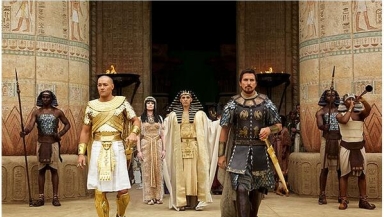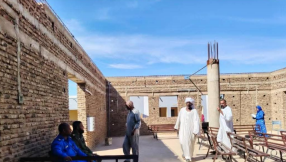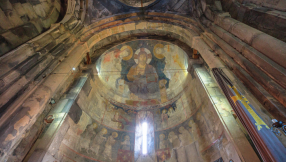
Ridley Scott's biblical epic, "Exodus," has been banned in Egypt and Morocco for historical inaccuracies, various outlets reported this week.
Morocco announced they were pulling the film just one day before its screening. "Exodus" was filmed in Morocco, as well as Spain and England, but it appears the studio recently fell out of favour with the state-run Moroccan Cinema Centre (CCM).
Cinema owners were told that the ban was nationwide, and at least one owner reported that his business was threatened with closure if he disobeyed the order.
"They phoned and threatened they would shut down the theatre if I did not take the film off the schedule," Hassan Belkady of Cinema Rif in Casablanca told media24.
CCM Chief Sarim Fassi-Fihri declined to comment on the matter. However, the Egyptian culture minister stated on Friday that the censorship board banned the film for being historically inaccurate.
The minister, Gaber Asfour, took particular issue with the depiction of the Jews building the pyramids.
"This totally contradicts proven historical facts," he said. "It is a Zionist film. It gives a Zionist view of history and contains historical inaccuracies and that's why we have decided to ban it."
Supreme Council of Culture head Mohammed Afifi, who also sits on the censorship board, disputed the accuracy of several scenes in "Exodus." The climactic parting of the Red Sea was described as a "tidal phenomenon" instead of a miracle, he said, and Moses was shown holding a sword instead of a "stick."
The biblical figure Moses was a Hebrew adopted by the Pharaoh's daughter, who went on to free the Israelites from Egyptian slavery. The film was criticised in the US for casting white actors in the roles of the royal leads, and minorities as thieves and slaves in the film.
"Exodus: Gods and Kings" has received mixed reviews, and cost $140 million. The film has grossed $107 million internationally.













